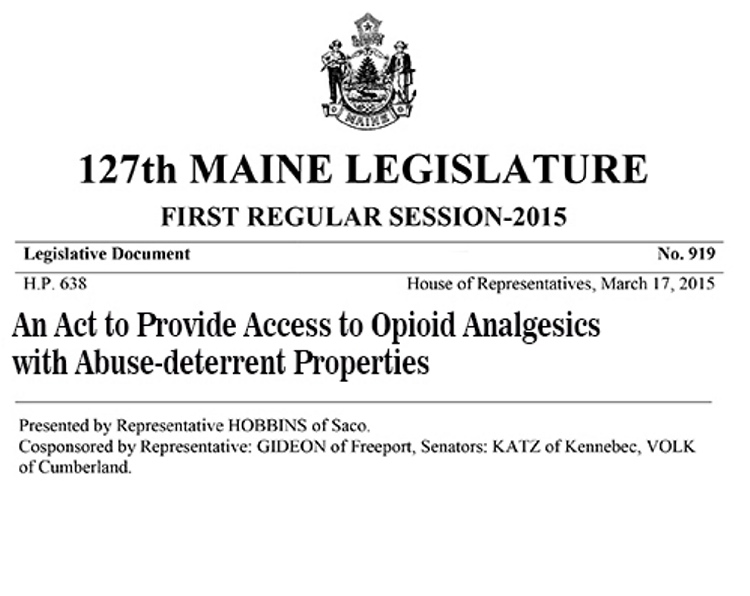Prescription opiates have been a godsend to those suffering from chronic pain — and a blight to those who have found themselves hooked on the addictive medications.
Newer formulations have made it much tougher to misuse pain pills, and the Maine Legislature is considering a measure that would bar insurers from charging a higher co-pay for medications with these abuse protections. Legislators should support it as part of a multi-pronged strategy to reduce the abuse of painkillers.
Chronic pain afflicts an estimated 100 million Americans, and federal researchers have determined that “the majority of people with pain use their prescription drugs properly.”
Some patients, though, end up addicted to painkilling medications such as Zohydro and Vicodin, and some have switched to heroin when their prescriptions run out.
To stem the tide of addiction, technology has been developed that prevents users from chewing, crushing, grating or grinding pain pills to experience the “high.” But the less addictive versions of prescription opiates can cost hundreds of dollars more per month.
Co-sponsored by Democratic Reps. Barry Hobbins of Saco and Sara Gideon of Freeport and Republican Sens. Roger Katz of Augusta and Amy Volk of Scarborough, L.D. 919 would mandate that patients who are prescribed drugs with abuse-deterrent formulations pay the same co-pay as they would for painkillers that lack these properties.
If the bill is approved, it would remove the financial incentive for consumers to choose the cheaper versions, to which it’s easier to become addicted. Insurers have objected to L.D. 919, claiming that because abuse-deterrent formulations are often more expensive, the bill could result in higher premiums. But this criticism overlooks the high price of addiction.
The cost of drug and alcohol abuse in Maine tops $1 billion per year, including medical, criminal and incarceration expenses. An opiate-related hospitalization costs nearly $14,000 on average, a drug company senior manager told Maine lawmakers, while the price per patient for substance abuse treatment is nearly $6,000 — and the number of people in Maine seeking treatment for opiate addiction more than doubled betwen 2004 and 2013.
An effective public health approach to addressing the opiate abuse epidemic also must include risk assessment, informed consent, patient monitoring and education of doctors, pharmacists and consumers. But while abuse-deterrent medications aren’t a silver bullet, making them more available and more affordable could reduce the risk of addiction. By supporting L.D. 919, our elected officials have an opportunity to make this happen.
Send questions/comments to the editors.



Success. Please wait for the page to reload. If the page does not reload within 5 seconds, please refresh the page.
Enter your email and password to access comments.
Hi, to comment on stories you must . This profile is in addition to your subscription and website login.
Already have a commenting profile? .
Invalid username/password.
Please check your email to confirm and complete your registration.
Only subscribers are eligible to post comments. Please subscribe or login first for digital access. Here’s why.
Use the form below to reset your password. When you've submitted your account email, we will send an email with a reset code.